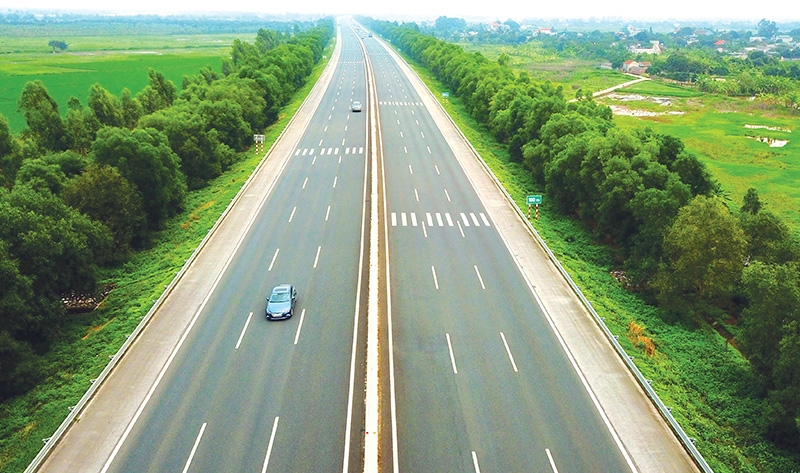New BOT approaches bring investment opportunities
 |
| New BOT approaches bring investment opportunities, Illustration photo |
Deo Ca Group, one of the largest developers of build-operate-transfer (BOT) transport projects in Vietnam, last week announced that a financial company from California has proposed to acquire 5-10 per cent stake in the company to become a major shareholder.
“The US partner made this proposal after studying our investment activities. It aims to venture further into transport projects in Vietnam,” said vice chairman Tran Van The. “Investors from the US, Singapore, South Korea, and others are also seeking cooperation with us and want to become strategic stakeholders.”
Deo Ca made the move amid difficulties related to bank loans facing their BOT transport schemes. The company plans to attract foreign investment, apply new business models, and issue corporate bonds to ease reliance on bank credits.
Deo Ca and other infrastructure investors are also proposing to the government to establish an investment fund, allowing them to issue construction bonds to lure in capital. This proposal got support from ministries and agencies, opening a new approach for public-private partnership (PPP) projects.
These are the initial steps for Deo Ca to mobilise foreign capital from investors and international financial institutions to optimise profits and gradually reduce domestic bank loans with high lending rates, thus improving financial indexes in the long term.
At the Cam Lam-Vinh Hao section that is part of the eastern cluster of the North-South Expressway, Deo Ca leads a consortium of investors and is confident to successfully implement the venture with diversified plans to mobilise funding without reliance on credit loans. Deo Ca is known for many key BOT transport projects such as the Deo Ca, Cu Mong, and Hai Van tunnels, among others. Other BOT transport developers include Vinaconex and Tasco, which are now facing problems related to fundraising and VAT refunds.
Members of the Vietnam Association of Road Systems Investors (VARSI) are now waiting for a solution related to lending rates and VAT refunds from the Ministry of Finance (MoF), which could come out in August as requested by the government.
Tran Chung, chairman of the VARSI, said, “For a year we have sent similar proposals to the MoF. However, the problems have not been solved yet. This time, we sent it to the prime minister, hoping for a way out.”
“Many members of the association are stuck with problems,” Chung added. “Transport projects often require huge investments, with the majority coming from bank loans, thus causing a heavy burden on developers, especially in the first years of operation. Meanwhile, BOT transport projects often produce low revenues at first.”
According to the VARSI, the existing rules on lending rates by the MoF will cause losses for project developers in the first years, who often only make higher profits in the last months of the operation circle.
BOTs, a type of PPP, are the most popular model in Vietnam. However, banks still hesitate to lend to BOT initiatives for fear of capital increase, long investments, and high risks. Previously, a number of initiatives have hit the rocks, including Dau Giay-Phan Thiet Expressway, the first pilot project in this format, despite strong interest from international investors.
Meanwhile, other initiatives were credit stuck, such as at Huu Nghi-Chi Lang, Van Don-Mong Cai, and Trung Luong-My Thuan. Many of them halted construction for a number of years due to loan access problems.
Despite strong interest from international investors mainly from China, South Korea, France, and Japan, Vietnam has not attracted much overseas investment in roads yet due to lack of bankability and a suitable legal framework.
In 2017, the market witnessed the acquisition of 20 per cent in Vietnamese FECON Corporation in the Phu Ly Bypass project by Japanese East Nippon Expressway Co., Ltd and Japan Expressway International Co., Ltd., making them the first foreign enterprises to enter such a scheme.
In 2014, Vietnam Infrastructure Development and Finance Investment JSC signed an agreement in principle to sell 70 per cent in the BOT Hanoi-Haiphong expressway project to Indian investors. In 2016, France’s VINCI Concessions signed a cooperation agreement with Vietnam Expressway Corporation, covering concession schemes for road infrastructures operated by the latter.
With the approach among Vietnamese road transport businesses and a more favourable legal framework under the Law on Public-Private Partnership Investment, BOT transport projects are expected to welcome more overseas financiers, and Vietnam aims to develop additional 4,000km of expressways by the end of the decade.
What the stars mean:
★ Poor ★ ★ Promising ★★★ Good ★★★★ Very good ★★★★★ Exceptional
Related Contents
Latest News
More News
- Hermes joins Long Thanh cargo terminal development (February 04, 2026 | 15:59)
- SCG enhances production and distribution in Vietnam (February 04, 2026 | 08:00)
- UNIVACCO strengthens Asia expansion with Vietnam facility (February 03, 2026 | 08:00)
- Cai Mep Ha Port project wins approval with $1.95bn investment (February 02, 2026 | 16:17)
- Repositioning Vietnam in Asia’s manufacturing race (February 02, 2026 | 16:00)
- Manufacturing growth remains solid in early 2026 (February 02, 2026 | 15:28)
- Navigating venture capital trends across the continent (February 02, 2026 | 14:00)
- Motivations to achieve high growth (February 02, 2026 | 11:00)
- Capacity and regulations among British areas of expertise in IFCs (February 02, 2026 | 09:09)
- Transition underway in German investment across Vietnam (February 02, 2026 | 08:00)

 Tag:
Tag:




















 Mobile Version
Mobile Version